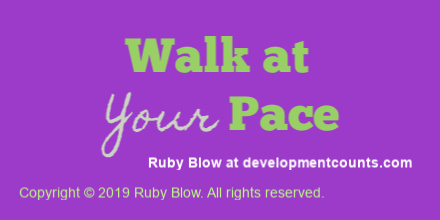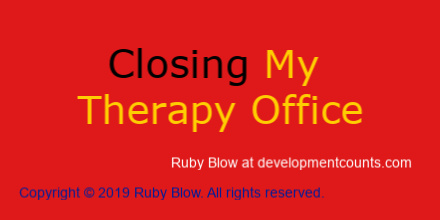How should you navigate your therapy practice during a public health crisis?
This is a question many people are asking themselves. Some of us are already living with compromised health. Others are at risk due to age. Still others recognize that anyone is at risk of illness like the flu virus, the corona virus or other communicable illnesses. Regardless of risk factors, we are all in some way affected when there is a national or local crisis.
Those effects include our responsibility to protect ourselves as well as our responsibility to protect our clients. For many entrepreneurs the reality of practice interruption is devastating. The loss in income is not sustainable. The real concerns around loss of income can put clinicians at risk because the responsibility of earning a living is in competition with preserving one’s life.
Income and Reserve Resources
A public health crisis that can potentially limit or restrict one’s work is not unlike the experience of government employees when there is a shut down. They have to try to live off of savings or take out loans or go without having their needs met. In some cases, they are able to depend on institutions to extend a grace periods.
But for the entrepreneur, some of those options may be less available. Ideally, therapists will be able to tap into reserve savings set aside for the ebb and flow of practice. However, many are living directly off of everything that comes in as it comes in. Savings are spent as soon as there is a need like a medical bill or car repair; or a want such as a concert ticket or a weekend away.
How I Have Navigated Crisis Over the Years
Below are a few ideas on how to navigate during a crisis, whether it be public health, personal health, a recession, or leaving (or losing) a job. The list below is a reflection of some of the things I have done over the years when life happened and my work/income were affected.
- Use telemental health as a service delivery option. Whether it be phone or video conference.
- Tap into savings to fill in gaps in income.
- If you qualify, file for your practice interruption insurance such as short term disability or a critical illness policy.
- Ask for and accept help from family if they have the means to assist you and you have the relationship to support being able to ask for help.
- Take on part-time work with regular income. In the climate of a public health crisis it could be some form of online work that utilizes your expertise.
- Reduce your expenses where you can.
- Join forces with other clinicians with whom you have a close working relationship for support and problem solving. There is strength in numbers.
- I will add a few others suggestions that I have not had to use in the past but that I now highly recommend. Put a policy in place: a set of guidelines for clients and for your office regarding keeping the office environment sanitary. This would include informing one another of any exposures to communicable viruses, as well as a commitment to not expose one another.
Embracing Uncertainty
With regard to the feelings of uncertainty, I suggest that you do your best to embrace flexibility. Trust the timing of your actions and your inaction. For example, I have been planning to release some “in person” training dates for supervision continuing education. However, because I needed to work out some systems and because I had a backdrop of uneasiness…I had not yet taken action. In the meantime, the public health crisis with the corona virus occurred and my oncologist advised me to exercise caution in my exposure to groups of people. At the same time our licensing board is in the process of updating our rules to allow live webinars to count the same as live in person events. I am still honoring my commitments to a few events that have already been publicized like my telemental training event (discount code “ItCounts”) with my colleague Ray Barrett of the Telehealth Certification Institute. And I am also in the process of making some decisions on how to proceed in order to protect my health as much as possible during both flu season as well as the uncertainty of how the corona virus will impact all of us.
Be Smart
My best advice is “be smart.” Viruses and illnesses cannot be fought with the mentality that “you can’t let a virus stop you from living your life.” I promise you, viruses don’t have feelings. Regardless of the origins and whether or not you think you are at risk… be smart and cautious. It is not just your health you could be risking. A public health crisis tests our ability as a community to look out for one another.
Copyright © 2020 Ruby Blow. All rights reserved.
Share your thoughts on Linkedin, Facebook, Twitter, Instagram or log in to one of your accounts below to comment. Subscribe to my YouTube channel.





